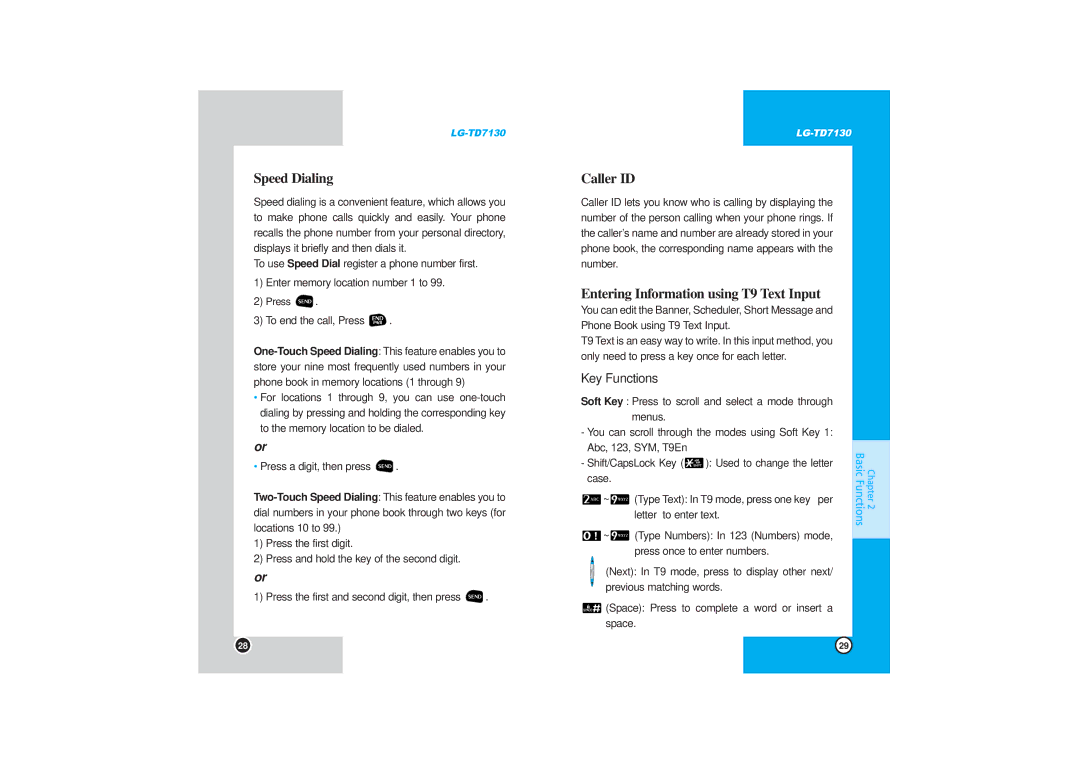
LG-TD7130
Speed Dialing
Speed dialing is a convenient feature, which allows you to make phone calls quickly and easily. Your phone recalls the phone number from your personal directory, displays it briefly and then dials it.
To use Speed Dial register a phone number first.
1)Enter memory location number 1 to 99.
2)Press ![]() .
.
3)To end the call, Press ![]() .
.
•For locations 1 through 9, you can use
or
•Press a digit, then press ![]() .
.
1)Press the first digit.
2)Press and hold the key of the second digit.
or
1) Press the first and second digit, then press ![]() .
.
Caller ID
Caller ID lets you know who is calling by displaying the number of the person calling when your phone rings. If the caller’s name and number are already stored in your phone book, the corresponding name appears with the number.
Entering Information using T9 Text Input
You can edit the Banner, Scheduler, Short Message and Phone Book using T9 Text Input.
T9 Text is an easy way to write. In this input method, you only need to press a key once for each letter.
Key Functions
Soft Key : Press to scroll and select a mode through menus.
-You can scroll through the modes using Soft Key 1: Abc, 123, SYM, T9En
-Shift/CapsLock Key (![]() ): Used to change the letter case.
): Used to change the letter case.
~ | (Type Text): In T9 mode, press one key per |
| letter to enter text. |
![]() ~
~![]() (Type Numbers): In 123 (Numbers) mode, press once to enter numbers.
(Type Numbers): In 123 (Numbers) mode, press once to enter numbers.
(Next): In T9 mode, press to display other next/ previous matching words.
![]() (Space): Press to complete a word or insert a space.
(Space): Press to complete a word or insert a space.
Chapter 2
Basic Functions
28 | 29 |
